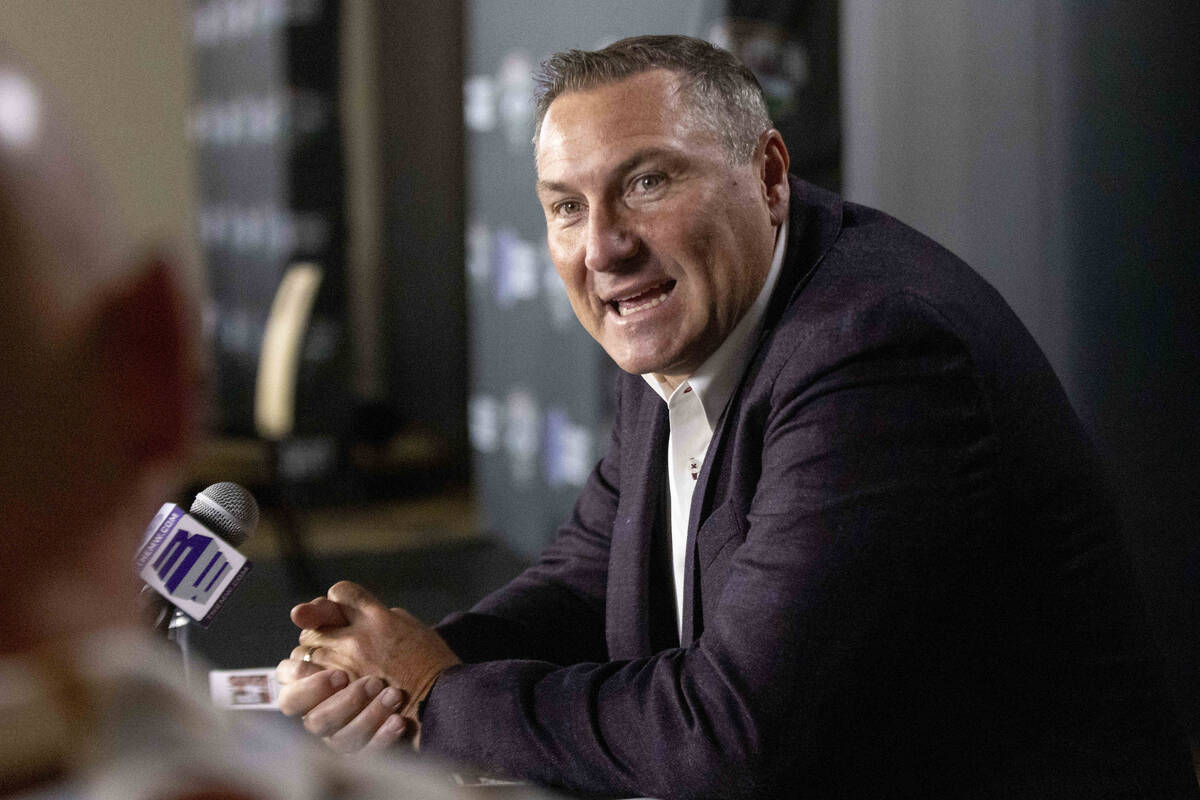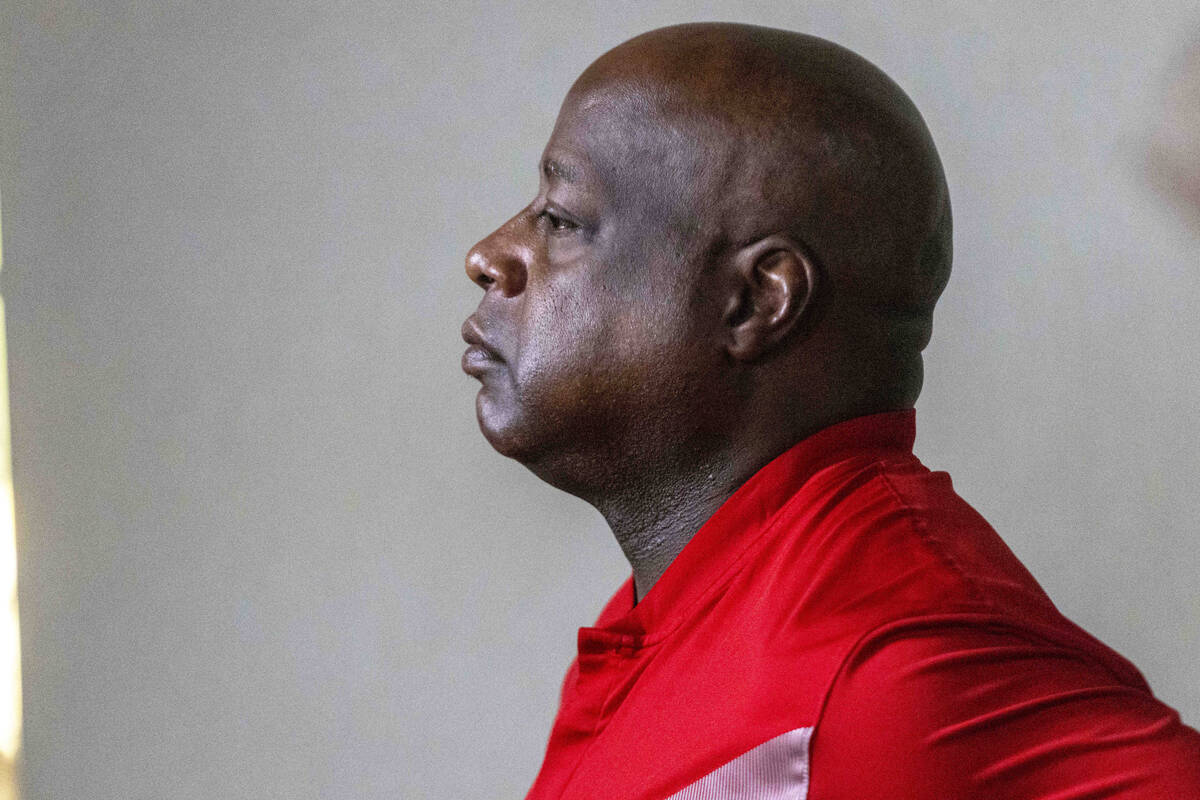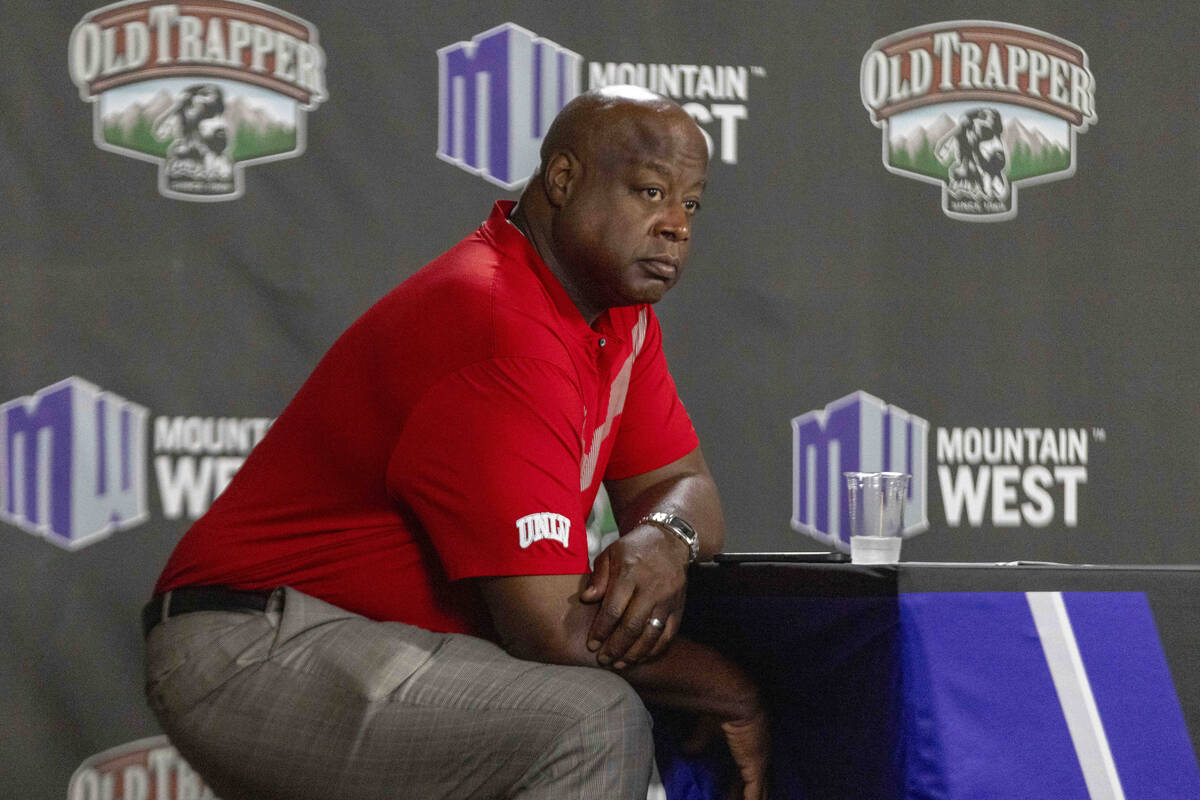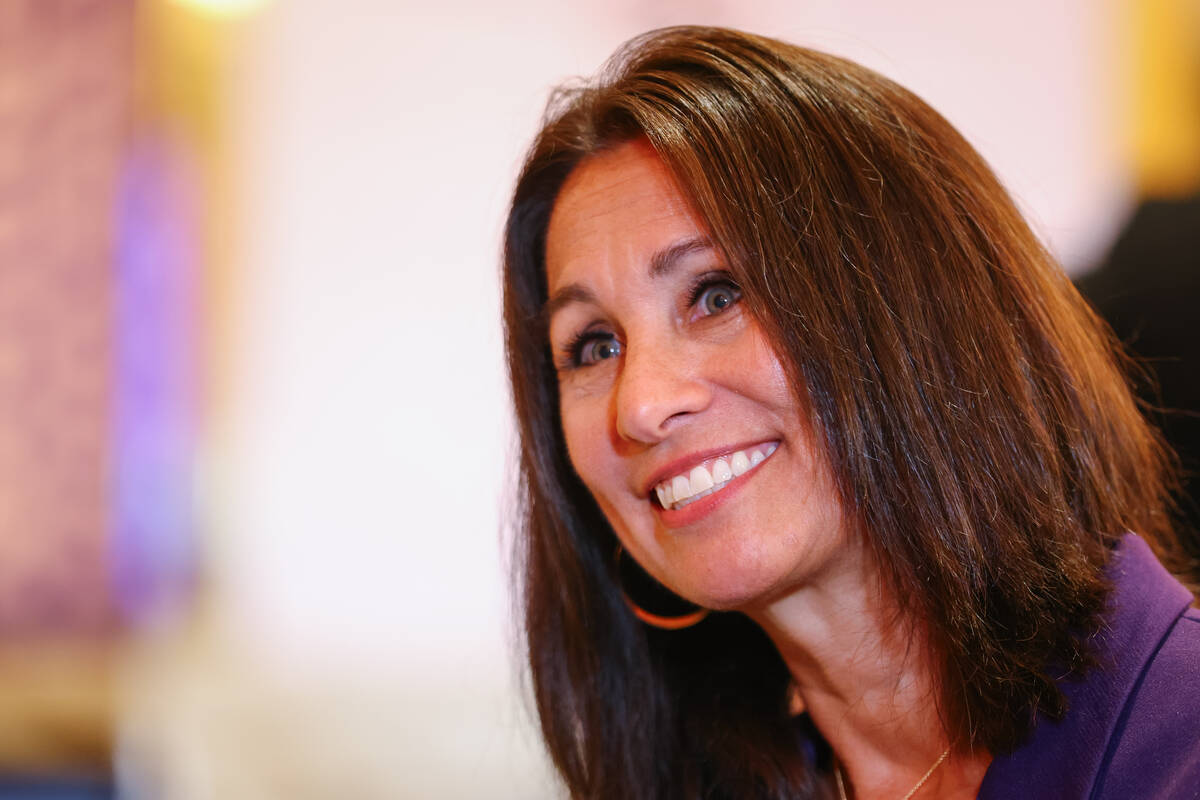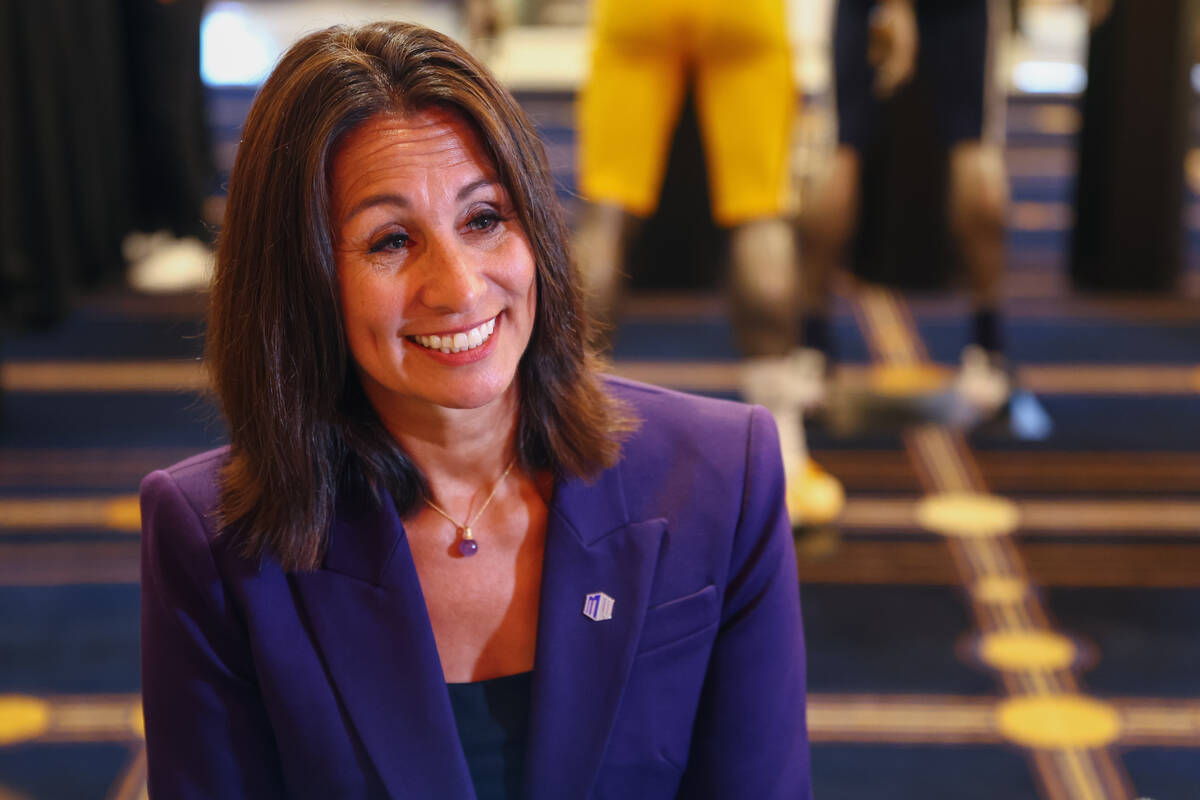MW football teams adjust to uncertain landscape: ‘It’s always changing’
There were times during his days at Mississippi State and Florida when UNLV coach Dan Mullen would host parties at his house for his freshman class.
Mullen would look around the backyard and think about how good the group would be after playing together for three or four years.
Now that he’s back on the sidelines in a new era of college football, Mullen may instead look around and wonder how many of those players will still be on his team the following season.
The landscape has changed dramatically the last few years with relaxed transfer rules, the proliferation of name, image and likeness deals and now revenue sharing with athletes.
Mullen watched most of those developments happen from afar as a television analyst, leading him to believe he has a good understanding of what he’s walking into.
“I think being away from it helped rather than being in it,” Mullen said Thursday during Mountain West media days at Circa. “Talking to some coaches, it gets changed from one year to the next to the next and they’re always constantly changing and I kind of let a lot of the change happen and got to see that from a 30,000-foot view and kind of get to grips with where it is and how we’d have to adjust and change our program in the new world of college football.”
The landscape shifted again not long after Mullen took the UNLV job in December. The House vs. NCAA settlement that was approved in June allows schools to pay their athletes directly.
“It’s always changing,” Mullen said. “I think it was all in the foundation stages when I left, but coming back to it, you just kind of have to look at it as the program is the program. Your program and what you do on the field and in the building is not going to change as the head coach, other than not really having that thought about developing your team for three years out when half your roster is going to be all new every season.
“I think that is such a major change, even more than where the NIL money is coming from and the league and the transition and how it’s going to be administratively done. I think we’ll adapt to that other stuff pretty easily.”
UNLV ‘confident’ in plan
UNLV athletic director Erick Harper will be tasked with managing a lot of that change.
He acknowledged there may still be more questions than answers about how to handle the new rules. But he believes the Rebels are prepared for the new era.
“I’m very confident,” Harper said. “Anybody who says they’ve got it all figured out is full of it because we will still be trying to figure it out a year from now and a year from then.”
Things may take another dramatic turn sooner than later.
More litigation is expected. There is already a dispute between the parties involved in the House settlement about whether NIL deals done through collectives should still be allowed moving forward.
“It’s been fast and furious,” Mountain West commissioner Gloria Nevarez said. “Certainly I agree that the House settlement is a good set of parameters, but it’s going to be a bumpy road. We’ve only lived in it for a few weeks and we’re already hearing stories about tampering and deals not being approved. There is a growth period, but I’m optimistic this sets us up to have a more stable environment than the wild, wild west we’ve been living in.”
Politicians may get involved soon as well. President Donald Trump is considering an executive order that could set a national standard for college athletics going forward.
“The important part is when you look at the landscape of college athletics right now is that you have to have a large level of flexibility and be able to understand that this is fluid,” Harper said. “If you’re cooking one way today, you might be cooking another way tomorrow. But you’re trying to arrive at the same conclusion at the end of the day and that’s to take care of the student athletes.”
‘Have to get a hold of it’
There are no easy solutions.
Hawaii coach Timmy Chang, a former star quarterback, believes more adjustments are necessary.
He said the current transfer rules and payment system are like NFL free agency, except colleges also have to deal with admissions offices and class schedules.
“I don’t think we in college football have wrapped our heads around a conclusion where it works best for us,” Chang said. “We probably have to get a hold of it fast.”
Chang said some kids are being taken advantage of with all the backroom dealing going on. They’re getting promised things that aren’t ultimately delivered.
He hopes all levels of college football will give input on potential solutions, instead of the top programs making decisions for everybody.
“Everybody is trying to figure it out,” Chang said. “What I hope is the guys making decisions at the top think about everyone, not just those at the top of the food chain.”
Focus on the field
Most Mountain West players said while they are thrilled to be able to earn more money, their focus remains on the field.
“It’s a thing where you like it because it’s revenue sharing and we’re finally getting this great opportunity, but you don’t want to get your head too buried in it,” Boise State offensive lineman Kage Casey said. “We’re here to play football and that’s where I want to focus my time. I don’t want to be going to photo shoots or appearances every day or taking meetings with someone that I may possibly be able to do an NIL deal with.”
Nevarez doesn’t believe college football is facing an existential crisis. Yet.
“I don’t even know what’s next,” Nevarez said. “But I do think if we can hit the implementation (of the clearinghouse) NIL Go and revenue sharing and all the parameters created by the House settlement in even stride and get comfortable there, I think we have a good shot of keeping college athletics going.”
Contact Adam Hill at ahill@reviewjournal.com. Follow @AdamHillLVRJ on X.



